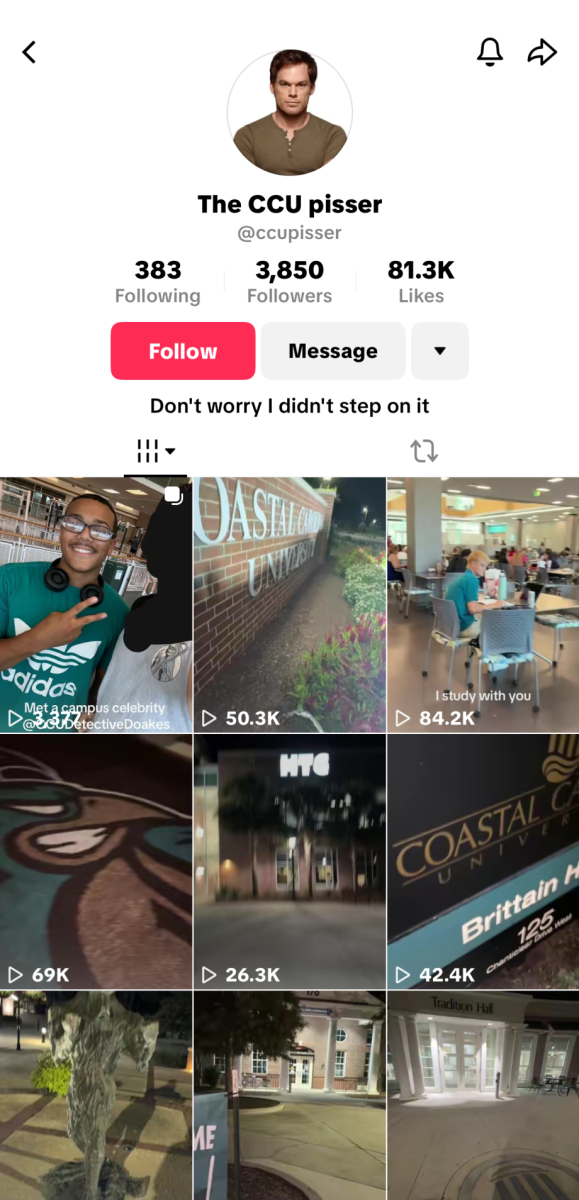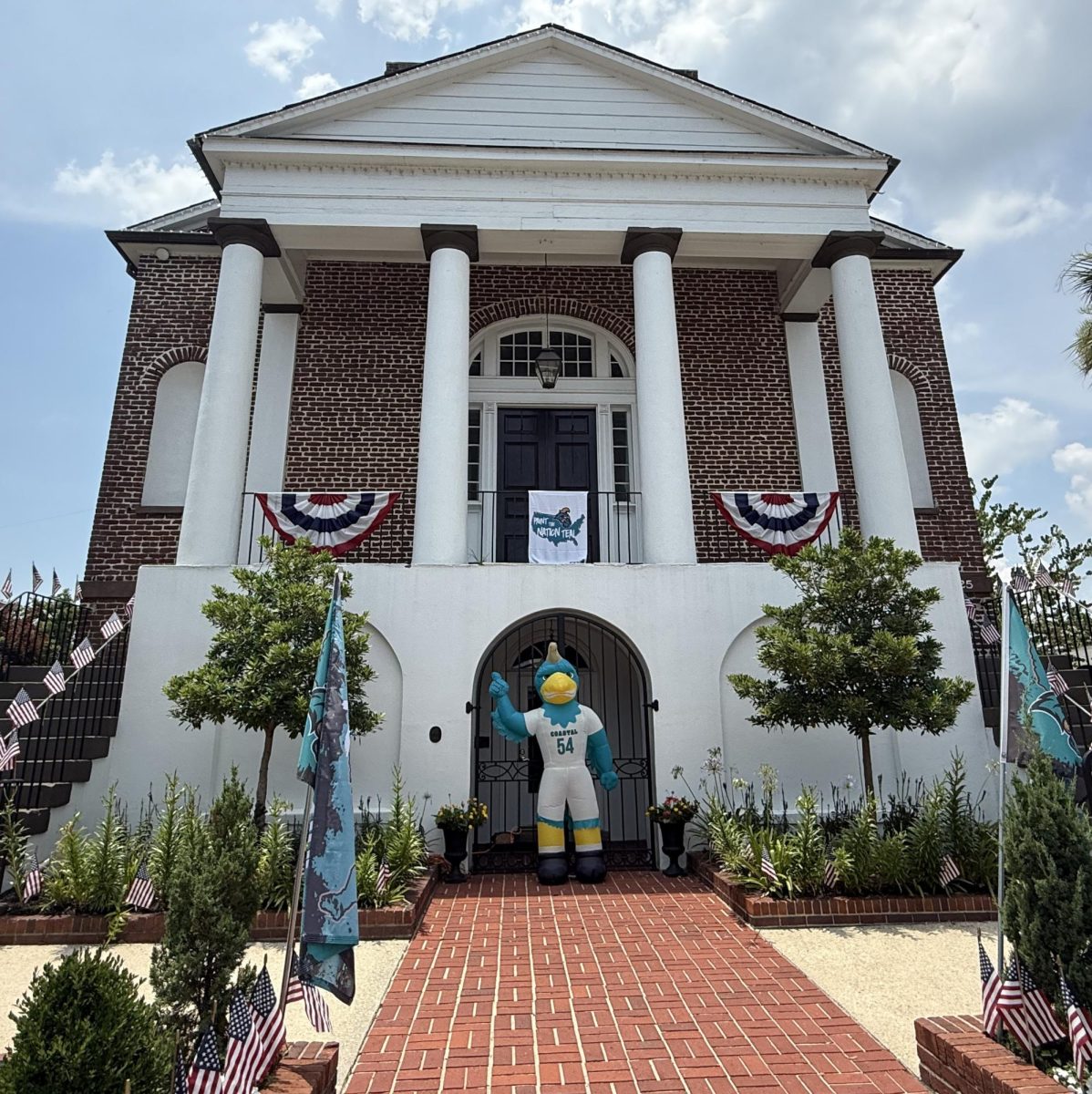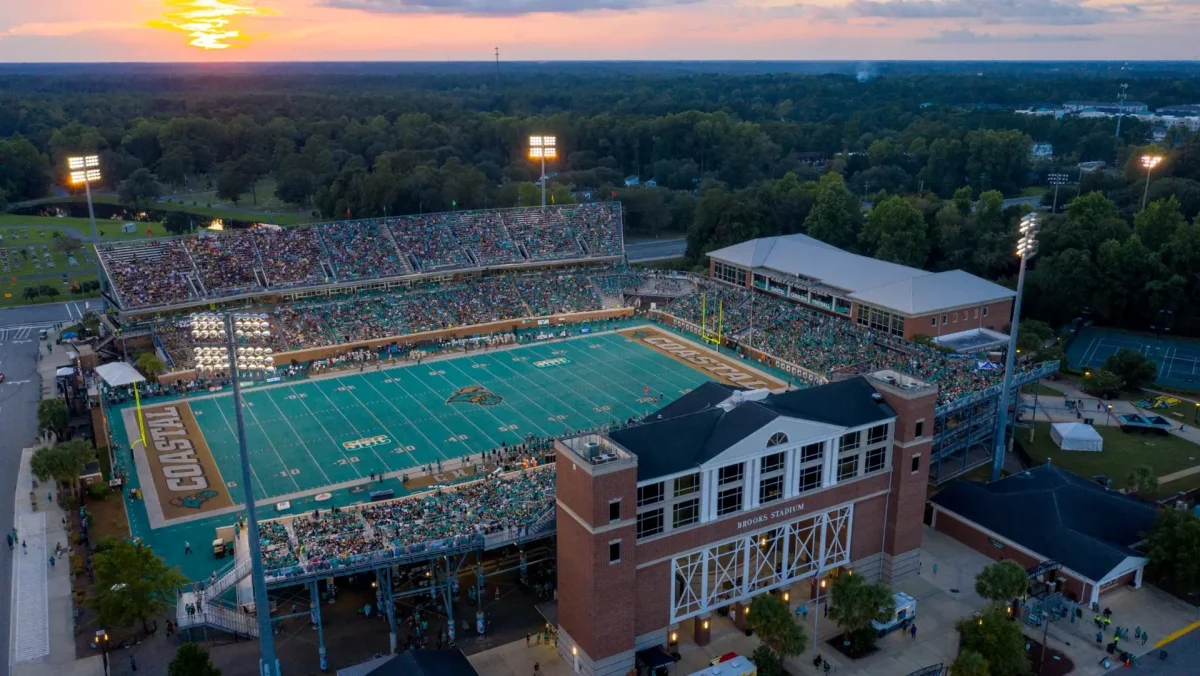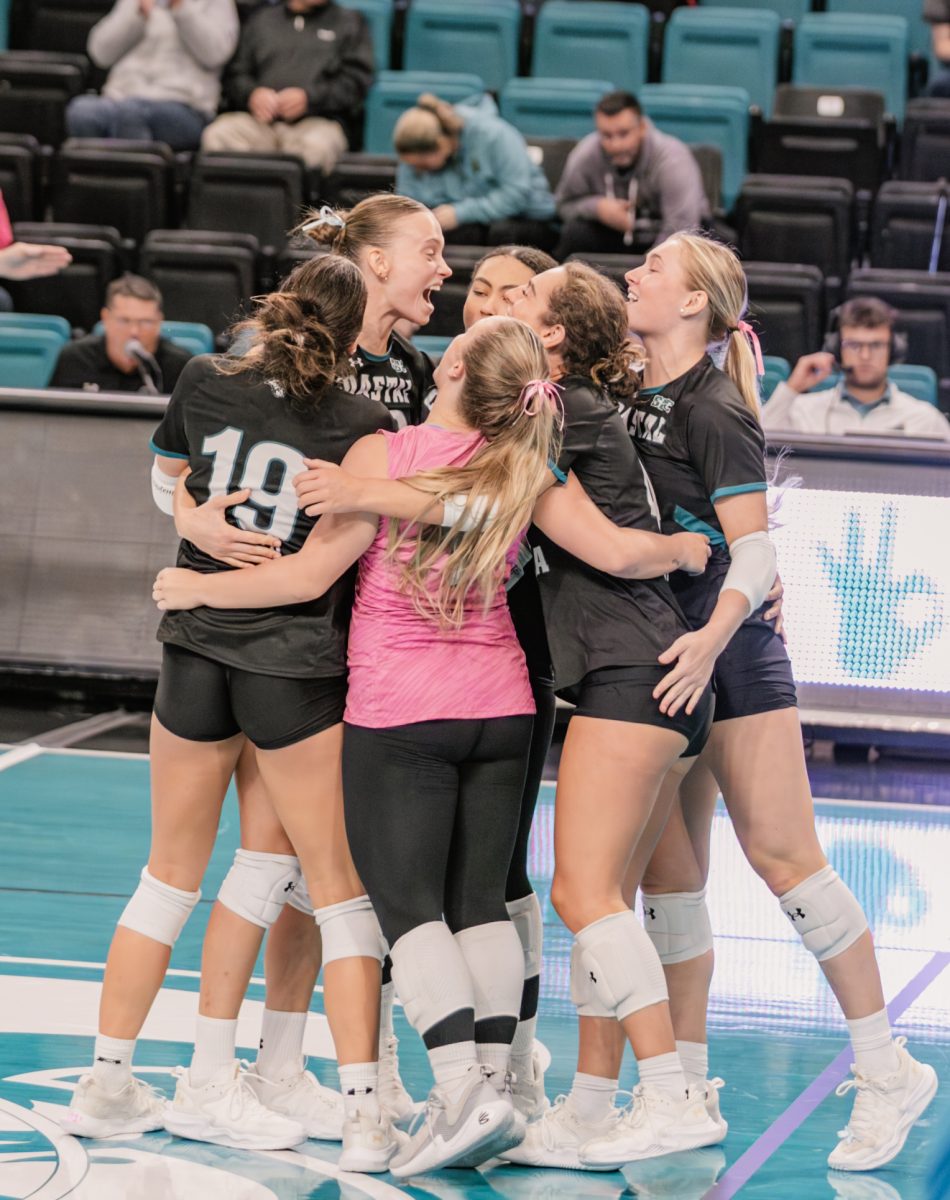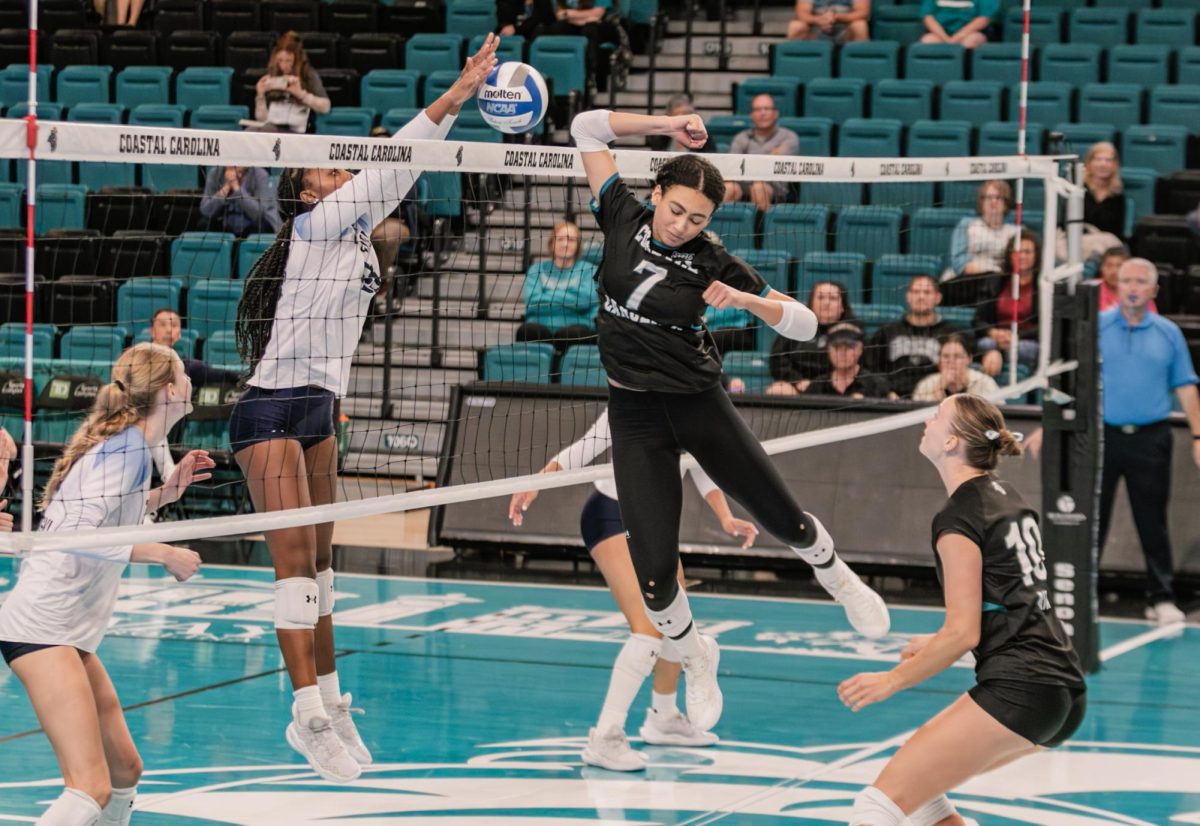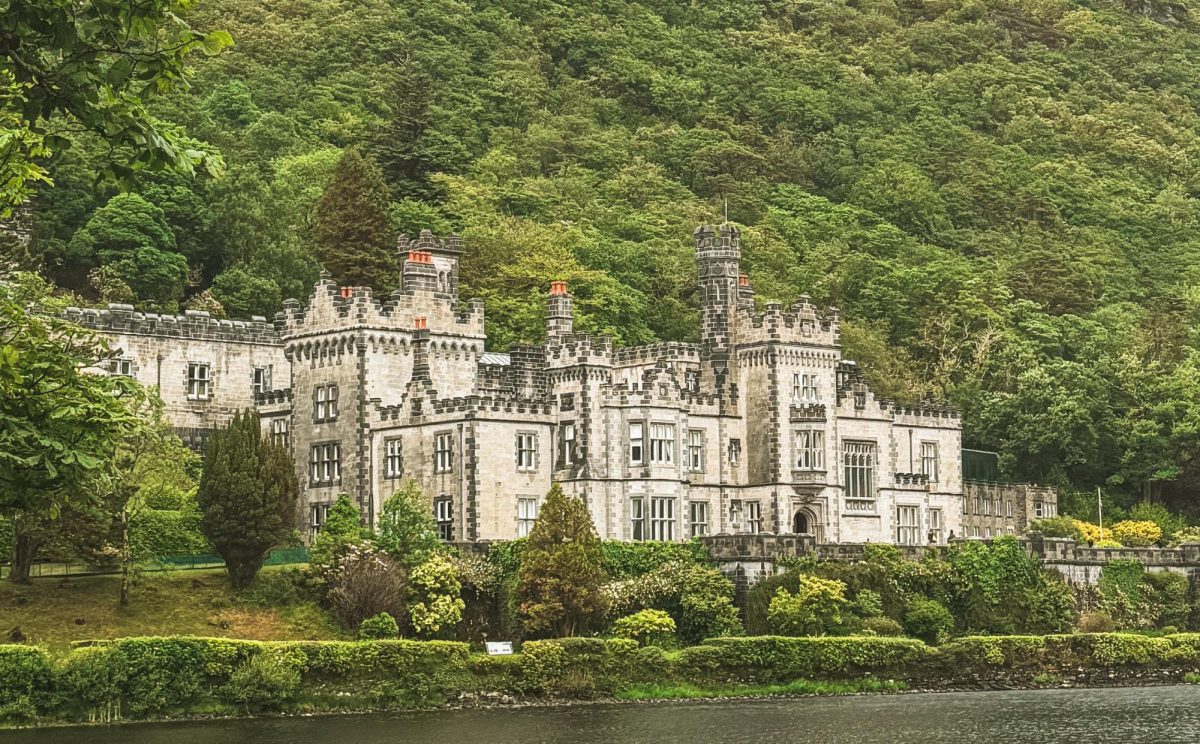Journalism has been under attack in recent years, with prominent politicians accusing journalists of spreading “fake news.” As the editorial board of The Chanticleer, we believe in and understand the importance of upholding journalistic standards.
The journalistic process is complex and meticulous to ensure information is accurately portrayed. Freedom of the press is an essential pillar of a stable democracy, as people deserve to be educated on issues that concern them. Now, on the cusp of the 2024 presidential election, where the President-elect has publicly condemned journalists at his rallies and frequently encouraged distrust of the media, people are unsure where to turn.
President-elect Donald Trump held a rally on campus Feb. 10 in the HTC Center where he garnered a large crowd to listen to his one-and-a-half-hour speech. Caroline Surface, current multimedia editor for The Chanticleer, covered the event.
“He referred to the press in the back of the building as “fake news,” while the crowd booed. He repeated this statement several times,” Surface previously reported.
The Chanticleer, which Trump doesn’t know exists, was included in his broad and dishonoring statement. With one statement, he discredited the lot of student journalists at Coastal Carolina University who have devoted their college careers to telling the truth.
We are nearing the end of our college experiences and looking to where our career paths might lead. Will there even be any space for journalists in the next four years? Will we be able to pursue our passions or use our degrees that we spent thousands of dollars on?
The press is meant to be truthful, and function as the watchdog for those in power. It is not meant to only congratulate, nor is it meant to defame.
If news is negative, or “bad press” as some call it, this doesn’t classify it as fake. Therefore, Trump’s past is a breeding ground for press, and it will continue to be throughout the next four years.
This is how you can spot “fake news,” according to Cornell University’s online library:
- Consider the source
- Check the author
- Check the date of the article/news piece
- Read past the headline
- Click hyperlinks as supporting sources
- Ask an expert (i.e. librarian, faculty member)

